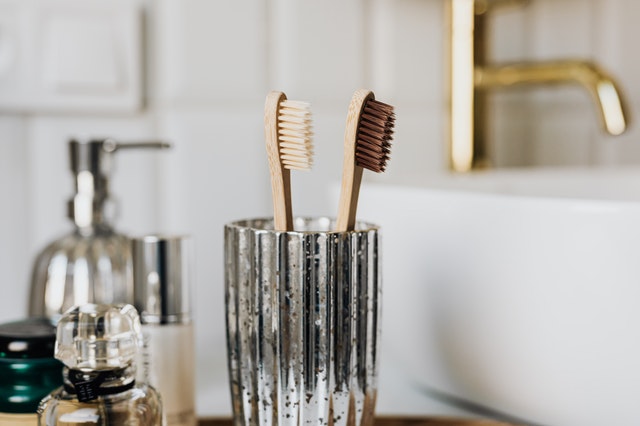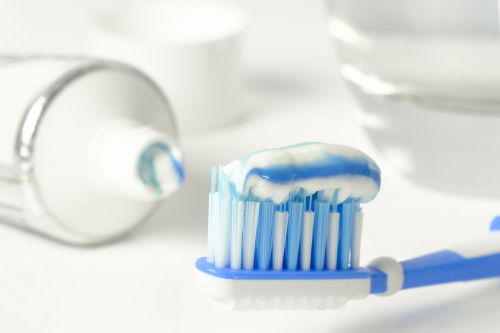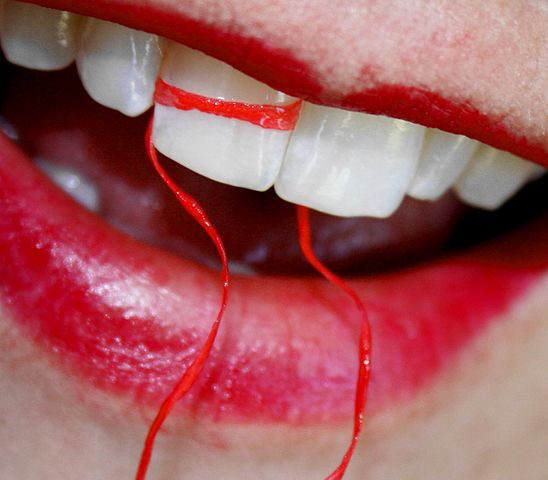
With more and more people now trying to shift their lifestyle choices to more natural alternatives, many dental products have come under scrutiny.
Yes, there may be plenty of natural dental products out there, but are they as effective as their synthetic counterparts?
Keep reading to find out…
What Makes a Dental Product Natural?
A natural dental product won’t contain any of the following ingredients:
- Synthetic foaming agents, such as SLS (sodium lauryl sulphate)
- Parabens
- Phthalates
- Petrochemicals
- Artificial colorings
All of the above can be potentially harmful but are often found in non-natural products. Take SLS, for example, which is a known irritant. While it may give toothpaste a thick and satisfying lather, it has also been linked to an increase in gingivitis and gum problems.
Of course, each of those ingredients also has a use when it comes to creating dental products. So, are the products that don’t contain any harmful ingredients just as effective as the ones that do?
It all depends on the actual product…
The Pros and Cons of a Natural Toothpaste

With toothpaste being a product that is usually used at least twice a day, it makes sense that people are wary of putting potentially harmful ingredients into their mouth so frequently. This has led to an increase in the number of natural toothpaste products out there.
The Advantages of a Natural Toothpaste
The main benefit of a natural toothpaste will be the lack of exposure to harmful ingredients. They tend to be made with specific herbs and clays that help to draw toxins out of the mouth, leaving you with beautifully fresh breath.
Since the mechanical action of your toothbrush bristles rubbing against your teeth will be the same whether you use natural or non-natural toothpaste, this still helps to keep dental plaque to a minimum.
The Disadvantages of a Natural Toothpaste
Most natural kinds of toothpaste don’t include any fluoride. Although this is a natural mineral, there is quite a bit of controversy surrounding fluoride usage, which is why most natural brands tend to skip this out.
However, a recipe that doesn’t contain fluoride will often put a natural toothpaste at a disadvantage. Fluoride is key when it comes to the demineralizing process, which is vital for preventing tooth decay.
Wondering if you can sub in some fluoride on a weekly basis instead?
No, dental experts tend to agree that fluoride needs to be used on a daily basis to properly protect your teeth from decay.
The Pros and Cons of a Natural Mouthwash
Mouthwash is another dental product that many use fairly regularly, with most mouth rinses being formulated with an alcohol, usually ethanol. This can lead to a burning or dry sensation in the mouth after use, and can even trigger flare-ups of certain oral conditions.
The Advantages of a Natural Mouthwash
The main advantage of a natural mouthwash is not having to deal with the side effects that an alcohol-based mouthwash can cause. Research shows that alcohol-free mouthwashes can work just as well, and can even have a more positive effect when it comes to the color and hardness of your teeth, along with any fillings you may have.
The ingredients used in a natural mouthwash can also provide additional benefits, such as offering anti-fungal and anti-inflammatory properties.
The Disadvantages of a Natural Mouthwash
Surprisingly, there aren’t any disadvantages to a natural mouthwash. Alcohol is usually included as a preservative, and it also acts as a carrier agent for ingredients that penetrate the plaque in your mouth.
The alcohol itself doesn’t destroy any bacteria but is used because it is a low-cost ingredient. With natural mouthwashes working just as well, this would seem to be the better option.
The Pros and Cons of a Natural Dental Floss

Dental floss is crucial when it comes to daily oral care, working together with toothbrushing to prevent gum disease. However, most dental floss is made from nylon, which is a non-biodegradable material. Those who are looking to do their part for the environment have started looking into natural alternatives to traditional dental flosses.
The best natural alternative to a dental floss would be a water flosser, which was actually invented way back in 1962. These are available as standalone devices, but can also be incorporated into certain toothbrushes.
How do they work?
Pulsating, pressurized water is released through a flossing tip, which then dislodges any bacteria, food or dirt that has built up.
The Advantages of a Natural Dental Floss
Water flosses are easy for anyone to use, even those who have braces, dental implants or bridges, which can often be difficult to navigate with traditional floss.
The massaging action produced by a water flosser is also able to target areas that are hard to reach with standard dental floss.
Since a water flosser can be re-used, there are environmental benefits to these products too.
Of course, a water flosser isn’t the only natural dental floss out there. Certain foods provide a flossing action against your teeth. From orange peels to guava leaves to sesame seeds, chewing certain foods in a particular way can help to remove tartar and plaque build-up.
The Disadvantages of a Natural Dental Floss
The downside of a water flosser is that some may not be powerful enough to completely remove all plaque from the surface of the teeth. One way to get around this would be to alternate your usage of a water flosser with regular dental floss.
Natural dental flosses are also often more expensive, although their advantages tend to make up for this.
How Natural Products Affect Dental Implants
While there may be pros and cons to each natural dental product when it comes to regular teeth, how do they work with dental implants?
Again, this depends on the actual product. Dental implants just as regular teeth need to be cleaned twice a day with toothpaste. If they contain fluoride and abrasives, which regular toothpaste usually does, there’s a chance it’s damaging your implant.
On the other hand, a gentle and natural toothpaste will work well at keeping implants clean – just make sure that the formula you choose doesn’t contain any baking soda.
A natural water flosser, rather than regular dental floss, is also much better for keeping dental implants clean.
Of course, dental implants need a specific level of care. When it comes to teeth whitening, there are again many natural and non-natural products available, but both need to be avoided when dealing with implants. If you have noticed that your implants and your natural teeth are different in color, speak to your dentist about the best options available.
Final Thoughts
In addition to toothpaste, mouthwashes and flosses, there are so many other natural dental products out there. While it may be easy to be swayed by the idea of going green, it’s always important to look into each individual product first, to ensure that they are actually effective.
Some, such as natural mouthwash, are much better than their non-natural counterparts, whereas others, such as natural, fluoride-free toothpaste, won’t work to the same degree.
While going green is important, so is your oral health, meaning that you need to be armed with all of the right information when deciding whether or not to opt for a natural dental product.
About the author
Dr. Fadi Swaida first graduated from the University of Western Ontario with an Honors BSc in Biology before graduating from the University of Manitoba’s Faculty of Dentistry. He is an active member of his church and enjoys football and being by the water! His outgoing personality and fun-loving character will ensure you always feel welcome at Dentist North York.
As a dentist, I would like to say that Eco-friendly dentistry is currently transforming the medical and dental field to decrease its affect on our natural environment and reduce the amount of waste being produced. Eco-friendly dentistry uses a sustainable approach to encourage dentists to implement new strategies to try and reduce the energy being consumed and the large amount of waste being produced by the industry.